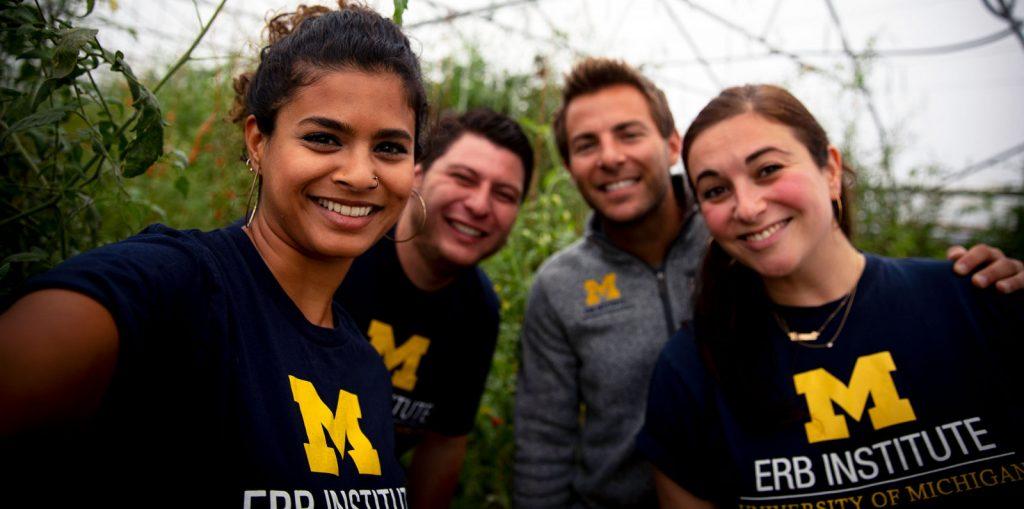Reflecting on a Year at the Erb Institute: Impact Investing and DEI

Originally published on erb.umich.edu
Around this time last year, I was weighing my grad school options. The Erb Institute rose to the top pretty early on in the process. Once I visited campus and got a taste of the sense of community the program fostered, I was sold. Of the multitude of high-value opportunities available through the Ross School of Business, the School for Environment and Sustainability and the Erb institute itself, here are a few that have been the most valuable in my graduate school career thus far.
Diving into impact investing
I arrived at Ross feeling like I was at a disadvantage because I was a blank slate when it came to finance. As I searched for a way to boost my quantitative and financial skills, I learned about the investment funds at Ross, through which students could learn about venture capital-style investing. I joined the Social Venture Fund, a student-led impact investing fund focused on supporting companies with social impact at the heart of their business model. Joining the club was like doing a venture capital boot camp over the course of a few months. I got crash courses in deal sourcing and screening, market research methods, financial analysis, and how to do due diligence. Going from finding a company to working with firms the fund had invested in was an incredible experiential learning opportunity that provided great fodder for interviews during recruiting season.
Advancing DEI
Another highlight of my time here has been learning about and advocating for diversity, equity and inclusion—particularly within the field of sustainability—by serving as the DEI representative for the Erb Student Advisory Board. I’ve learned from the SEAS DEI community and others who are knowledgeable and passionate about ideas like improving the inclusivity of sustainability in the U.S., crafting more diverse speaker panels, improving classroom inclusivity and the history of environmentalism in the West. I’ve worked with DEI practitioners—students, faculty and staff—on events like community service workdays, DEI dinners with underrepresented students at Erb, and speaker panels guiding students in cultural sensitivity to prepare them for MAP and SEAS master’s projects.
Rethinking impact
Most recently, the Erb Institute asked me to participate in an event that fostered ongoing conversations about the role of business in society—an incredibly important topic for us budding business leaders. I helped moderate a talk with the author of Winners Take All, Anand Giridharadas, when the institute invited him to speak. His book took the business community by storm and shook up my own perception of impact and how to garner change in the world. Through this Erb-sponsored event, I was able to spark a conversation with Giridharadas about nefarious corporate recruiting tactics, how the world can respond to climate change, and how impact-oriented students can work through the business-speak to find ways to make the world a better place.
These opportunities, and the myriad others I’ve been able to partake in over the last year and a half, have shaped my graduate career into a multifaceted, holistic experience that extends far beyond the bounds of the classroom. I’ve built a varied toolkit of skills—hard, soft, quantitative, analytical and managerial—that I believe make me a stronger, more conscientious and informed leader. I’m grateful that the Erb community has helped me uncover new opportunities, reminded me of my priorities and supported me as I’ve navigated this journey.

